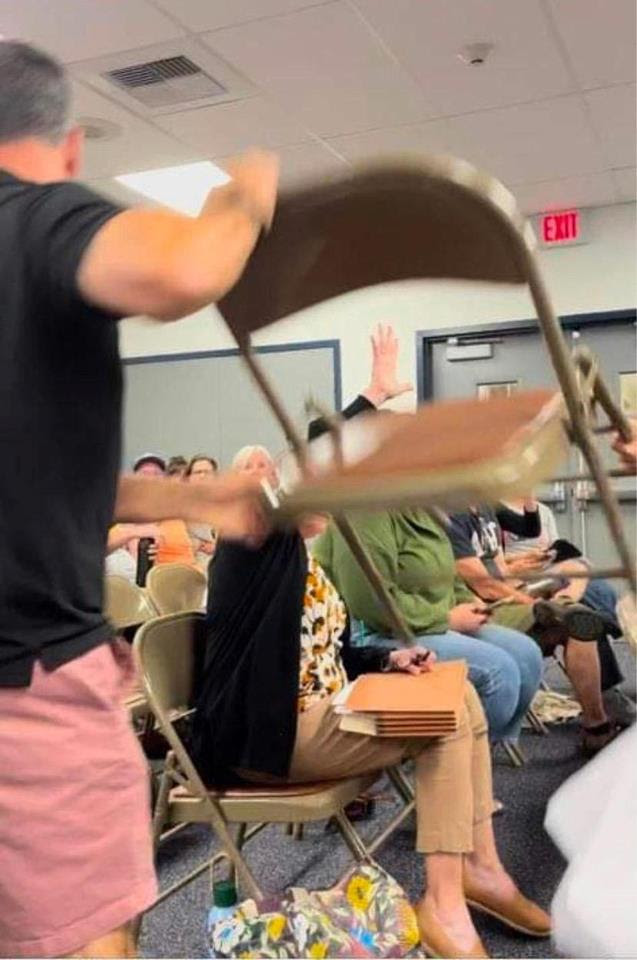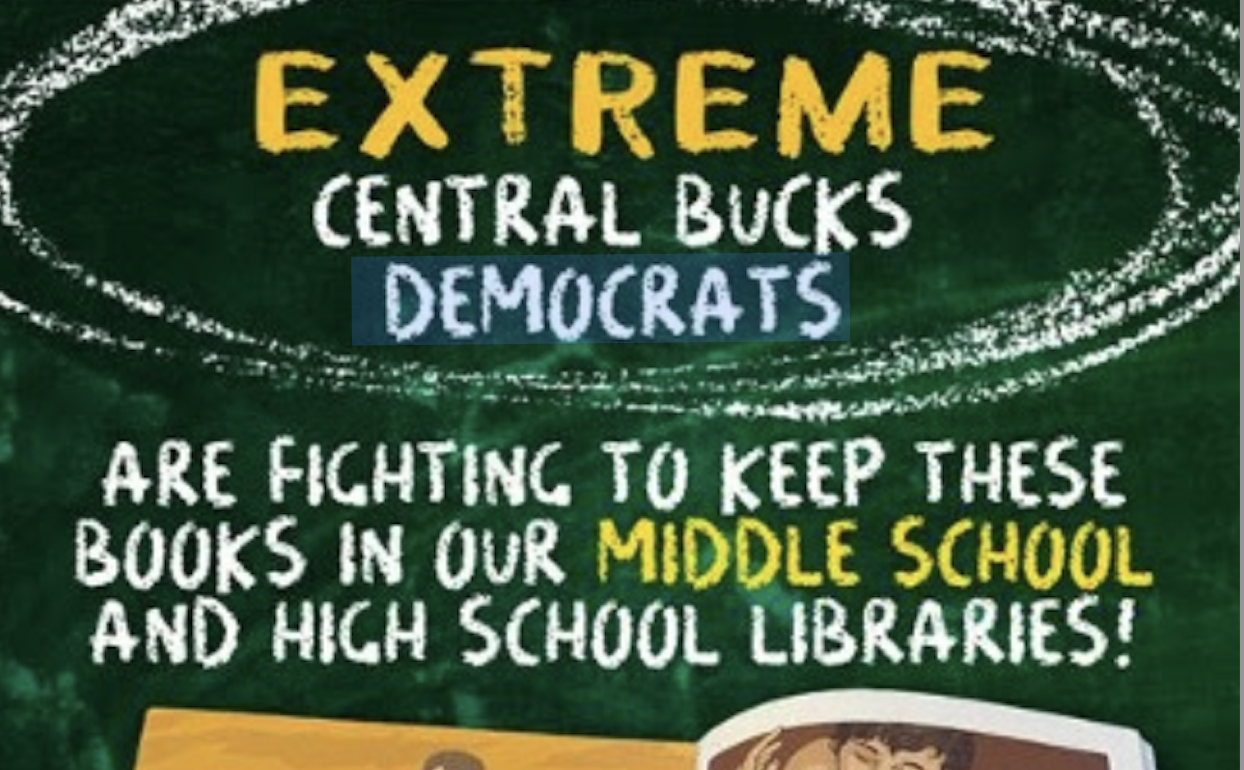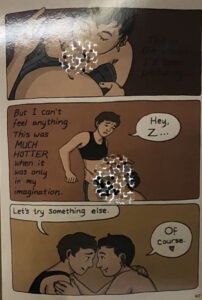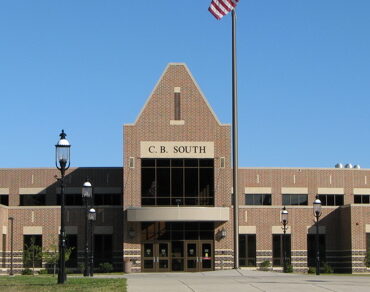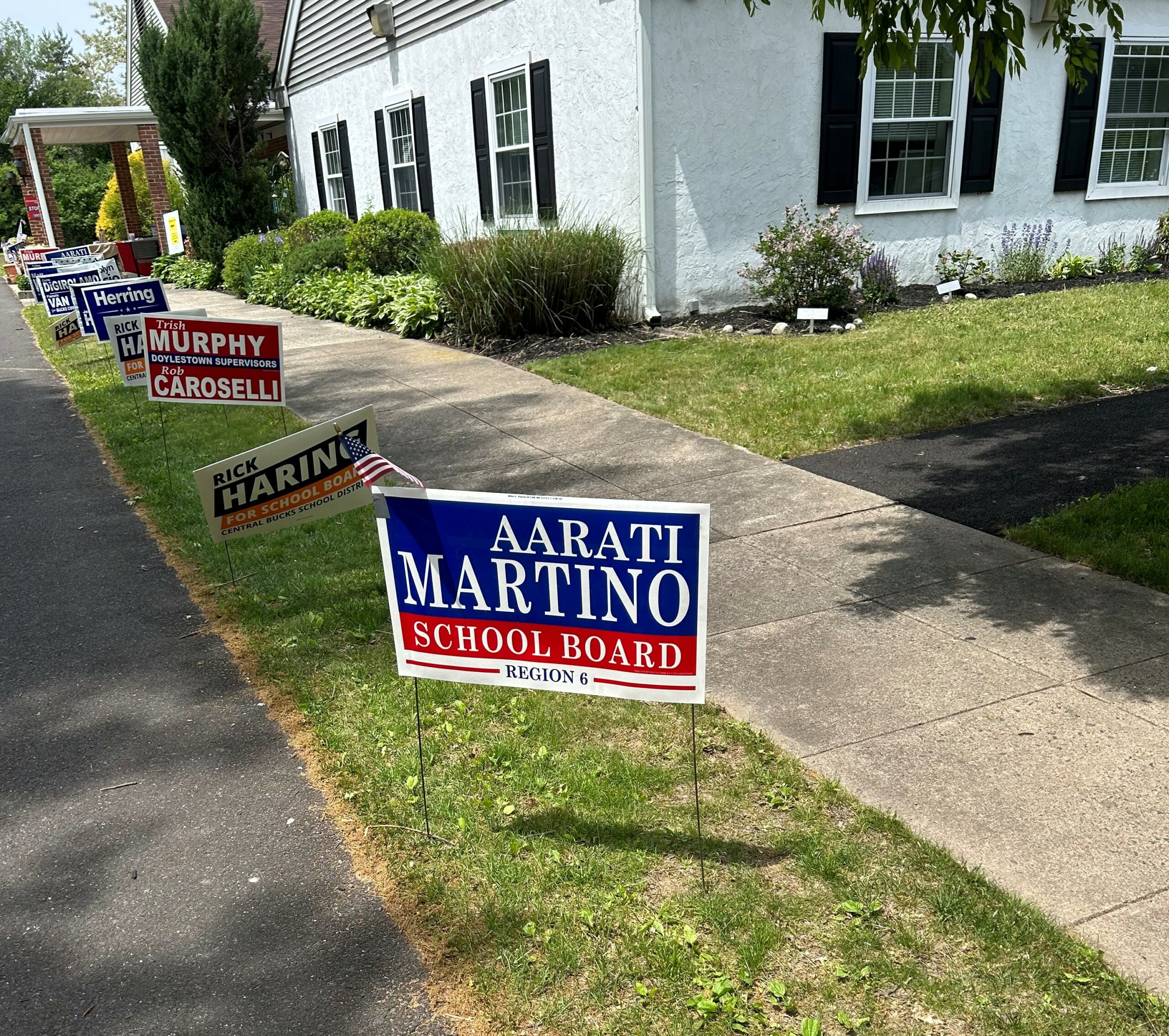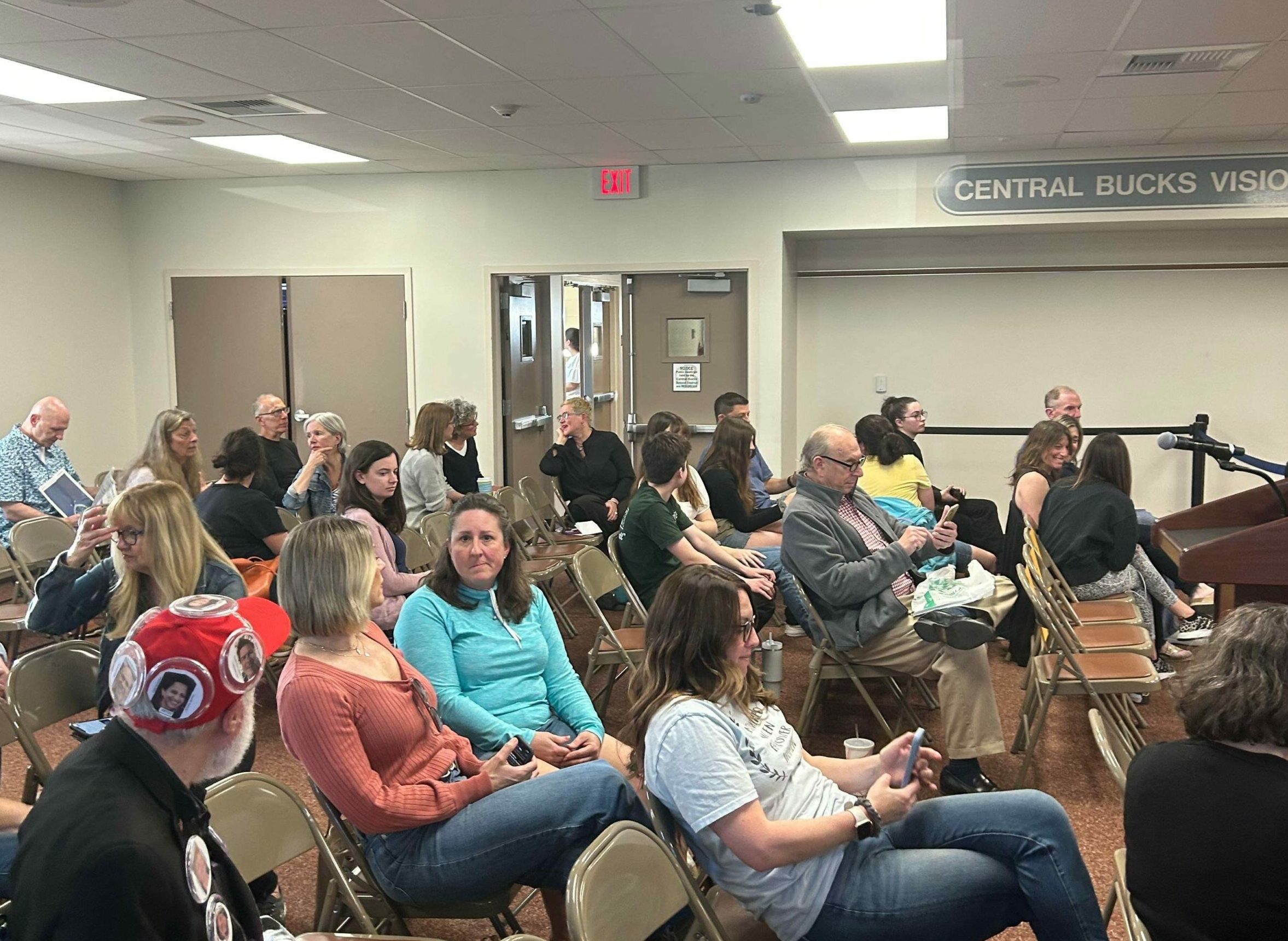
This article firt appeared in Broad + Liberty
Readers of news in southeast Pennsylvania may be under the impression that “anti-LGBT” hate pervades the newly flipped Central Bucks School District, but the district isn’t being helped at all by local media determined not to include the district’s explanations and defenses of its policies.
On at least five occasions, two prominent news outlets in the region have published articles casting the current board in the Central Bucks School District in a negative light on socially divisive issues, but the articles contained scant reference — or no reference whatsoever — to the district’s position or reaction to events.
A Broad + Liberty review of numerous articles about the district identified two articles by WHYY’s Emily Rizzo and two articles by Bucks County Courier Times reporter Chris Ullery in which there was no attempt at all by the journalists to contemporaneously portray or describe the district’s point of view. One additional article by Rizzo did present part of the district’s point of view, but only quoted the board president for a total of four words, effectively negating the emotional plea she made at a board hearing.
For the five stories analyzed here, CBSD Board President Dana Hunter said the district was not contacted for comment. Rizzo, and Ullery’s employer, Gannet, dispute that conclusion and defended their work as fair.
STORY 1: ‘These are human rights issues’: Pa. school board directors condemn Central Bucks for apparent anti-LGBTQ actions
This February story focused on a letter authored by 52 school board members from other districts condemning many of the policies and actions of the CBSD, whose board was won by a conservative majority after the November 2021 elections.
Rizzo’s story quoted the letter at length, and also quoted two of the letter’s signers. The story did not, however, present any response from the district, nor did it attempt to present or paraphrase any of the previous arguments the board had put forward in the ongoing debate over its policies.
The sentence familiar to all news consumers — “A request for comment was not returned.” — does not appear anywhere in the story.
A Broad + Liberty analysis of the letter signatories cross-referenced with Pennsylvania voter rolls shows at least 50 of the 52 signatories are Democrats. The party affiliation of one could not be determined. One person who signed the letter, Diana Stitt, is not on a school board, having lost her election in 2021.
Rizzo ignored a pointed question as to whether she tried to determine any significant partisan leaning from the group who signed the letter.
One board member from a neighboring district said the letter’s curators probably knew to be cautious in whom to approach.
“As one of 2 Republican members of the school board at Owen J. Roberts, I was not approached regarding this letter. I learned about it from a news article and saw that one of our members signed it,” she said. “I have no idea who was approached regarding this letter, but I assumed that it was a Democratic initiative and as a known conservative, the organizers would know better than to approach me.”
Broad + Liberty reached out to 51 of the letter signatories to verify our party-affiliation analysis. Efforts to reach Stitt were unsuccessful.
STORY 2: Central Bucks asks ACLU to reveal the LGBTQ students behind its federal complaint. ACLU says they fear retaliation
One of the most consequential moments of the new board’s tenure came in October when the ACLU of Pennsylvania unveiled a 72-page complaint — 27 whole pages of which were redacted — it filed with the U.S. Department of Education alleging that the CBSD had created a discriminatory atmosphere, especially with regards to gay and transgender students.
Rizzo’s story two days later noted that CBSD Board President Dana Hunter asked the ACLU for an unredacted version of the report so that it could investigate and appropriately deal with any instances of bullying.
Rizzo wrote that Hunter, “said the anonymous nature makes it ‘impossible’ for the district to ‘intervene.’”
Using that selectivity, Rizzo quoted a total of four words from CBSD Board President Dana Hunter, while quoting two persons from the ACLU more than thirty times that amount.
Despite having a full day between the board meeting and publishing her story, Rizzo would not or could not pull a quote from Hunter about her plea for help so that the district could address any problems of bullying or other problems of discrimination.
For example, Hunter said, “The anonymous and hidden nature of this information makes it impossible for our administrators, school counselors, and teachers to do the critical work of connecting with these unnamed individuals to intervene and address any possible bullying or problematic situations.”
“Please, if you are a student experiencing bullying or a family member who is concerned that your student is the target of discrimination or harassment of any kind, please come to your building principal, to your teachers, to anyone of our administrators, so that we can work together to support you and rectify the situation,” Hunter added.
Rizzo and her editors did not answer a direct question about why her story quoted Hunter so selectively and without context, as opposed to sharing longer portions of her statement.
The article seemed to imply that Hunter and the district wanted an unredacted version of the ACLU report to be released to the public at large, which Hunter says is not the case.
“The request was that the information be provided to administration so that the allegations could be investigated,” Hunter explained. “These are allegations against our teachers and staff. If there are children being bullied or harassed and it isn’t being handled properly, our administrators need to know so that it is properly addressed and children are protected.”
While Hunter’s remarks at the October meeting did not clearly express that the board hoped only for a private and confidential copy of the ACLU report, Rizzo’s reporting also did not resolve that ambiguity.
STORY 3: Student protesters threatened, while a new policy to censor library books looms in Central Bucks School District
The report from May led with the fact that an undisclosed number of students protested in support of teacher Andrew Burgess, whose leave of absence has been a topic of intense speculation and debate.
The district’s response is not provided, and Rizzo did not indicate she tried to get it.
This was the only story in which Rizzo gave specifics in her defense (her whole response provided further in the story), saying that the district failed to reply to two emails requesting comment. The story makes no mention of the outreach, or the district’s failure to respond.
STORY 4: CB teachers concerned about risk to students vow to defy transgender policy. ‘We’re not doing it’
In November, Ullery reported that a handful of teachers in the district planned to defy a district guide on which names to use for students.
The 1,400-word article did present prior arguments made by Superintendent Abram Lucabaugh, but the article also does not indicate if Ullery made any effort to obtain a contemporary quote from the district.
STORY 5: Central Bucks School District teachers walk out of meetings over new policy
An Ullery report from January summarized an incident where teachers walked out of class in protest of Policy 321, which bans teachers from displaying political flags or other paraphernalia in the classroom unless the flags or materials are related to the curriculum.
The policy is widely characterized in the media as “banning Pride flags,” — especially in headlines — but media characterizations rarely add that the policy also bans Trump flags, Thin Blue Line flags supporting law enforcement, and even the Confederate battle flag, unless the flags are related to curriculum, according to Hunter.
Ullery’s story quoted Superintendent Lucabaugh, but only from an email leaked to Ullery by the discontented teachers. Nothing in the story indicates if Ullery made a contemporary effort to obtain further comment from the district on the Lucabaugh email, or on the walkout.
FALLOUT
Hunter says the district did reach out to WHYY and Rizzo last year to discuss concerns the district had about the reporting, a not uncommon move by elected officials or governments who feel reporting does not provide sufficient balance or factual accuracy.
“Based on Emily Rizzo’s words and actions, it does not appear that she has interest in providing accurate or balanced information,” Hunter told Broad + Liberty. “The communications team did have more than one conversation with her about this on our behalf. The coverage of the district did not change.”
If Rizzo and Ullery did not reach out to obtain contemporary comment from the district as Hunter alleges, the actions would run counter to the published ethical guidelines set forward by each outlet’s parent news organization.
WHYY is a taxpayer-funded affiliate of National Public Radio whose ethical guide states, “We strive to give our audience confidence that all sides have been considered and represented fairly.”
The Bucks County Courier Times is owned by Gannett News, whose ethical reporting guide says, “We will strive to include all sides relevant to a story and not take sides in news coverage.”
In response to a detailed list of questions, Rizzo said, “I’ve reached out to school district leaders and stakeholders throughout my reporting and will continue to do so. For the story dated May 14, 2022, I reached out to the school district asking for a response to the allegations, as I do always. In two separate emails, the district gave me no reply.”
“I will continue to report on the Central Bucks School District developments with fairness and accuracy,” she concluded.
“The Bucks County Courier Times strives to include all relevant sides in our reporting,” said Danielle Camilli, editor of the Bucks County Courier Times and the Intelligencer. “We have provided the district with an opportunity to comment on the new policy and the ongoing issues being raised by faculty and students. Throughout the course of our reporting we will continue to be fair, accurate, complete, and unbiased in our coverage.”
Even when the board majority has had the opportunity to directly communicate its own thoughts and ideas, as it did in a January editorial in the Inquirer, the board says it has been left feeling snake-bitten.
When the six members of the “majority” authored the editorial in defense of some of its policies, the Inquirer headlined the piece, “We voted to ban Pride flags in Central Bucks classrooms because students should be taught how to think, not what to think[.]”
“The Philadelphia Inquirer chose the headline, we did not have any knowledge of it,” Hunter said. “Many of us were very frustrated with the title chosen and did not feel it was accurate. The headline contradicted the content of the op Ed, subsequently it lead (sic) to emails from the community expressing much confusion.”
Requests for comment to the Inquirer about the editorial’s headline were not returned.
“So yes, Policy 321 prevents teachers from hanging Pride flags in their classrooms” the editorial noted. “But it also bans anti-abortion banners, or any poster advocating for a particular partisan, political, or social policy issue, unless related to the day’s curriculum.
“We understand that the policy upsets some advocates. It upsets some teachers who want to advocate their personal views in the classroom; it upsets some students who agree with those views; it upsets some community activists who want to see their views championed in the classroom; it upsets some elements of the press who agree with those views; and it upsets the three board members who voted against the policy. But this outcry merely demonstrates the urgent need for the policy. Without it, partisan activity would abound in some classrooms.”
